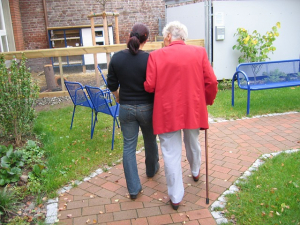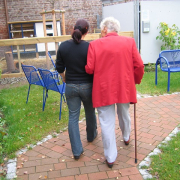Finding the Perfect Long-Term Care for a Family Member

Deciding where a loved one will reside after they are no longer able to care for themselves can be a difficult and emotional process. However, making plans for the future is often the best way to ensure an elderly relative will receive the best medical care and support possible. There are a variety of different types of assisted living facilities that can offer this care, including homes that accept insurance and those that do not. These decisions demand the greatest care and attention, so if you have questions or concerns about how to choose the best type of care facility for your loved one, it is critical to obtain the advice of an experienced elder law attorney who can help explain your options.
Types of Long-Term Care
Long-term care for the elderly is usually provided by one of the following:
- A nurse or home care aide;
- An unpaid caregiver;
- Local adult day services; and
- Residential care facilities.
Assisted Living Facilities
Often, the best course of action for many families is to reserve a space for a loved one in long-term assisted living facilities. These facilities can provide aid for seniors who do not need full-time care, but still require assistance with certain tasks, including:
- Dressing;
- Preparing meals;
- Housekeeping;
- Bathing;
- Providing transportation to and from medical appointments; and
- Administering medication.
In these types of assisted living facilities, residents are often permitted to live in their own room or apartment and can participate in social and recreational activities with other residents. Rent is usually paid on a monthly basis, with families paying additional fees for particular services. Most also provide licensed nursing services for those with more serious medical concerns.
Nursing Homes
Nursing homes provide twenty-four hour nursing care for the elderly who require a high degree of medical care and assistance. Residents usually share a room and are served meals in a central dining area. Many such residences require private funding, although some accept Medicare and Medicaid.
Residential Care Homes
These are private homes that serve residents who live together, but also receive assistance and medical care from live-in caretakers. Residential care homes offer assisted living for seniors who desire a more community-based living arrangement, but who still require help with daily activities such as bathing and dressing. Residents can pay rent through private funds or Medicaid.
Independent Living Communities
Seniors with less serious or few medical conditions may be able to join an independent living community. In these living situations, elderly family members are able to live more independently in an apartment of their own, while still receiving assistance as needed.
Providing for an elderly family member is an extremely important responsibility, so if your elderly relative has recently been diagnosed with a medical condition or needs assistance on a daily basis, please contact The Law Offices of David L. Carrier, P.C. by calling 616-361-8400 and we will help you set-up a consultation with an experienced Michigan elder law attorney who can provide guidance.



Leave a Reply
Want to join the discussion?Feel free to contribute!